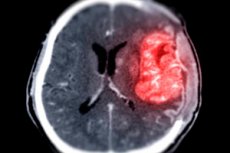
亚利桑那大学健康科学癌症中心的研究人员发现了一种生物机制,可以为转移至大脑的乳腺癌提供更有效的治疗方法。
通过研究原发性乳腺癌细胞和脑转移细胞之间的代谢差异,科学家们发现,自噬在脑转移瘤中被显著激活。自噬是一种细胞循环过程,癌细胞利用这一过程来抵御压力环境,例如抗癌药物引起的压力环境。
“乳腺癌脑转移患者的预后极差,治疗这些转移灶仍然充满挑战。我们能够通过破坏自噬途径来破坏癌细胞形成脑转移的能力。”该研究的资深作者詹妮弗·卡鲁博士说道。
在《临床与转化医学》杂志发表的一项研究中,研究人员表明,针对关键的自噬调节基因 ATG7 可以显著降低小鼠模型中乳腺癌细胞形成脑转移的能力。
研究人员研究了FDA批准的药物羟氯喹是否可用于治疗乳腺癌脑转移。羟氯喹抑制了该通路后期的自噬,更重要的是,它很容易穿过血脑屏障。
该团队将羟氯喹与拉帕替尼(也已获FDA批准用于治疗乳腺癌)联合使用。该联合用药已被证明能够成功减少小鼠模型中乳腺癌脑转移瘤的数量和大小。这是研究人员首次研究羟氯喹与拉帕替尼联合用于治疗乳腺癌的有效性。
“我们的团队惊讶地发现,仅通过靶向一条通路就能显著降低癌细胞形成脑转移瘤的能力,”卡鲁博士说道。“不幸的是,癌细胞进化出了许多方式,使其难以被阻止生长或杀死。仅仅改变一个方面就能带来如此大的变化,这总是令人感到有些惊讶。”
该研究的第一作者 Steffan Nawrocki 博士表示:“由于羟氯喹和拉帕替尼已经获得 FDA 批准,我们可以迅速开展这种组合疗法对乳腺癌脑转移患者的临床试验。”
脑转移瘤是成人中最常见的中枢神经系统肿瘤,20%-30%的病例发生在乳腺癌患者中,尤其是三阴性乳腺癌或HER2扩增患者。乳腺癌脑转移瘤的治疗具有挑战性,仅有20%的脑转移瘤患者能够存活超过五年。
这项研究为转移性乳腺癌的治疗开辟了新的视野,并可能显著改善这种严重疾病患者的预后。

